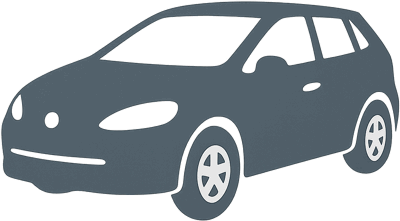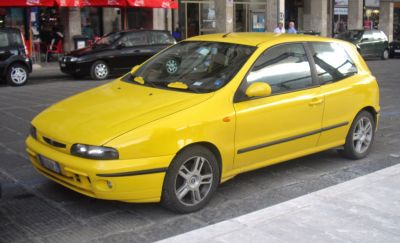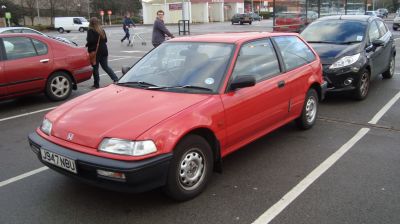 1993 Peugeot 306 Hatchback (7A/C) Dimensions, Size & Specs
1993 Peugeot 306 Hatchback (7A/C) Dimensions, Size & SpecsMeasurements of the 1993 Peugeot 306 Hatchback, engineered for optimal performance and comfort
| Dimensions | |
|---|---|
| Length: | 3995 mm157.3 in13.1 ft |
| Width: | 1695 mm66.7 in5.6 ft |
| Height: | 1365-1380 mm53.7-54.3 in4.5-4.5 ft |
| Trunk Capacity: | 338 liter11.9 cu ft |
| Trunk Capacity (Max): | 637-1146 liter22.5-40.5 cu ft |
| Weight Specifications | |
| Curb Weight: | 980-1160 kg2161-2557 lbs |
| Maximal permitted Weight: | 1490-1670 kg3285-3682 lbs |
| Tire Specifications | |
| Rims Sizes: |
|
| Tire Sizes: |
|
The Peugeot 306 Hatchback (7A/C), produced between 1993 and 1997, is a compact yet versatile vehicle designed to deliver practical urban mobility and efficient performance. Measuring 3995 mm (157.3 inches) in length, it offers a width ranging from 1692 to 1695 mm (66.6 to 66.7 inches) and a height between 1365 and 1380 mm (53.7 to 54.3 inches). This size profile places the 306 firmly within the small hatchback segment, ideal for navigating city streets and tight parking spaces.
Weighing between 980 and 1160 kilograms (2161 to 2557 pounds) in curb weight, the vehicle balances fuel efficiency with stability. Its maximum weight capacity ranges from 1490 to 1670 kilograms (3285 to 3683 pounds), reflecting its ability to accommodate passengers and cargo effectively. The 306’s hatchback design maximizes interior flexibility, featuring a luggage capacity of 338 liters (11.9 cubic feet) with rear seats upright, expandable to 637 to 1146 liters (22.5 to 40.4 cubic feet) once the seats are folded down. This capacity makes it well-suited for everyday driving needs, from groceries to weekend trips.
In terms of wheel and tire options, the 306 supports rim sizes of 14 and 15 inches, with tire dimensions varying from 165/70 R13 to 195/55 R15. Such variety allows customization for different driving styles and road conditions, enhancing both grip and comfort.
Overall, the Peugeot 306 Hatchback (7A/C) from the mid-1990s combines compact dimensions with practical space utilization and adaptable performance features, making it a compelling choice for drivers seeking a reliable hatchback in the compact car segment.
Discover the standout features that make the 1993 Peugeot 306 Hatchback a leader in its class
Have a question? Please check our knowledgebase first.
The Peugeot 306 Hatchback (7A/C), produced from 1993 to 1997, has a length of 3995 mm (157.1 inches), a width ranging between 1692 mm and 1695 mm (66.6 to 66.7 inches), and a height varying from 1365 mm to 1380 mm (53.7 to 54.3 inches). These compact dimensions contribute to its agility and ease of maneuvering, making it a practical choice for city and suburban driving.
The curb weight of the Peugeot 306 Hatchback (7A/C) ranges from 980 kg to 1160 kg (2161 to 2557 lbs), depending on the specific trim and options. The maximum permissible weight, which includes passengers and cargo, varies between 1490 kg and 1670 kg (3285 to 3683 lbs). This weight range reflects the vehicle's balance between performance and fuel efficiency while accommodating different variants and equipment levels.
The Peugeot 306 Hatchback offers a luggage capacity of 338 liters (11.9 cubic feet) with the rear seats in their upright position. When the rear seats are folded down, the capacity significantly increases, ranging from 637 liters to 1146 liters (22.5 to 40.4 cubic feet), depending on the model variant. This flexibility provides ample space for transporting larger items, making it practical for both daily errands and longer trips.
Yes, the Peugeot 306 Hatchback (7A/C) fits comfortably into a standard garage. With a length of 3995 mm (157.1 inches) and width of up to 1695 mm (66.7 inches), it is compact enough for typical garage dimensions, which usually allow for vehicles around 5 meters (16.4 feet) long and 2.5 meters (8.2 feet) wide. The added advantage of its moderate height (1365-1380 mm or 53.7-54.3 inches) ensures easy clearance when parking in most residential garages.
The slight variation in width between 1692 mm and 1695 mm (66.6 to 66.7 inches) in the Peugeot 306 Hatchback is minimal and generally does not affect driving or parking performance. It remains sufficiently narrow for city environments, allowing easy navigation through tight streets and parking spaces. The minor differences come from different trim and accessory variations like side mirrors or protective strips, which have negligible real-world impacts.
The Peugeot 306 Hatchback (7A/C) was offered with rim sizes of 14 and 15 inches. Compatible tire sizes include 165/70 R13, 175/70 R13, 185/60 R14, 185/65 R14, 195/50 R15, 195/55 R15, and 185/55 R15. This range of sizes provides options for different driving preferences, balancing comfort, handling, and road grip.
Compared to its predecessor, the Peugeot 309, the 306 Hatchback (7A/C) is generally more modern in design and slightly larger in footprint. The 306's length of 3995 mm (157.1 inches) tends to be slightly more compact or similar, though with improved interior space and aerodynamics. Width and height are optimized in the 306, focusing on improved stability and comfort. Overall, the 306 offers enhanced driving dynamics, better luggage space, and a more refined appearance compared to the 309.
When compared to similar mid-1990s hatchbacks such as the Volkswagen Golf Mk3 or Ford Fiesta of that era, the Peugeot 306 Hatchback (7A/C) is fairly competitive in size. Its length of 3995 mm (157.1 inches) places it in the compact hatchback segment, similar to the Golf Mk3 which is around 4 meters (157 inches) in length. The 306 tends to offer comparable width and luggage space, holding its own among European hatchbacks, with a focus on balanced urban usability and comfort.
The Peugeot 306 Hatchback’s compact dimensions—approximately 3995 mm (157.1 inches) long and 1695 mm (66.7 inches) wide—make it especially well-suited for urban driving where tight spaces and narrow streets are common. Its moderate height (up to 1380 mm / 54.3 inches) helps keep the center of gravity low, aiding in handling. The compact size simplifies parking in crowded city environments and allows for easier maneuvering in congested traffic, while still providing usable interior and cargo space.
The Peugeot 306 Hatchback (7A/C) has a height ranging from 1365 mm to 1380 mm (53.7 to 54.3 inches). This height range offers a comfortable balance between interior headroom and aerodynamic efficiency. For passengers, the headroom is adequate for average-sized adults, contributing to a comfortable cabin experience. The relatively low roof height also improves the car’s aerodynamic profile, which can help fuel efficiency and reduce wind noise, while still allowing the vehicle to fit easily into most garages or under carports.
Discover similar sized cars.

| Production: | 1999-2001 |
|---|---|
| Model Year: | 1999 |
| Length: | 4025 mm158.5 in |
| Width: | 1755 mm69.1 in |
| Height: | 1420 mm55.9 in |

| Production: | 2018-present |
|---|---|
| Model Year: | 2019 |
| Length: | 4029 mm158.6 in |
| Width: | 1940 mm76.4 in |
| Height: | 1409-1433 mm55.5-56.4 in |

| Production: | 1995-2002 |
|---|---|
| Model Year: | 1995 |
| Length: | 4025-4031 mm158.5-158.7 in |
| Width: | 1755 mm69.1 in |
| Height: | 1410-1420 mm55.5-55.9 in |

| Production: | 1994-2006 |
|---|---|
| Model Year: | 1994 |
| Length: | 3995 mm157.3 in |
| Width: | 1698-1710 mm66.9-67.3 in |
| Height: | 1365 mm53.7 in |

| Production: | 1987-1995 |
|---|---|
| Model Year: | 1987 |
| Length: | 3991 mm157.1 in |
| Width: | 1686 mm66.4 in |
| Height: | 1330 mm52.4 in |
